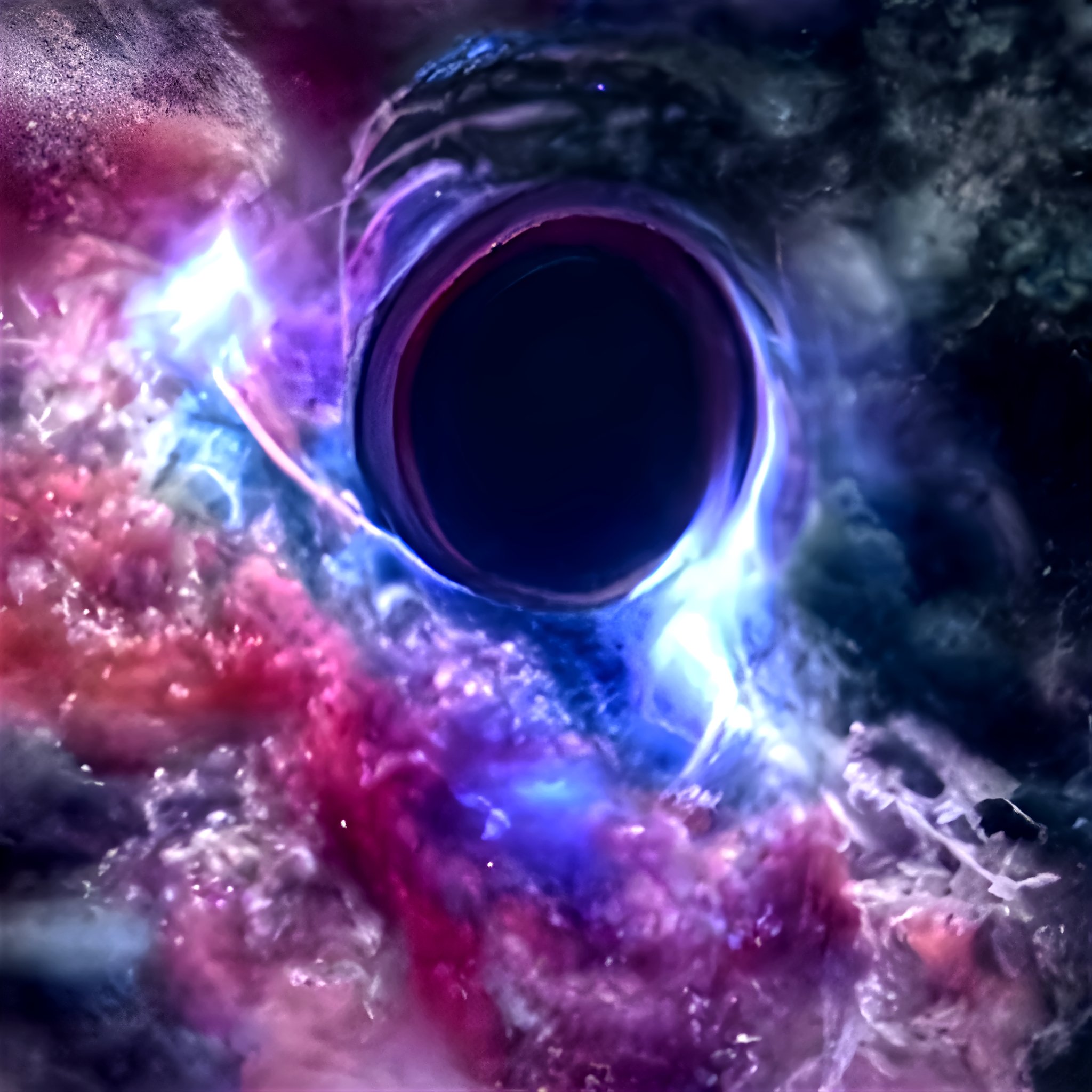
The Spiral and the Marketplace
The Novel Universe, unlike the beyond-life, is filled with all kinds of barriers, both knowable and unknowable. From the outside, we can “read” another’s body language, tone of voice, and verbal communication. With experience and wisdom, we might glean some idea of what’s going on inside, but deciphering the truth of another’s point of view and intent will always be flawed– even a full understanding of our own motivations can be challenging. Complete Information and Information Control are only accessible beyond the physical body in an afterlife (Concert Hall, Spiral, or Marketplace) where all barriers are both knowable and known, existing as inherent properties of the frameworks. As we choose our “heaven,” we chose both our limitations and our opportunities.
Before the “tunnel of light,” Near-Death Experiencers commonly report finding themselves in darkness, a void. Many feel an overwhelming sense of peace, while a few recall sheer terror, but, at least in the beginning, the experience is seemingly devoid of others. So, where is this first, disconnected place that we all go? We call it our “Spiral”– a universe of our own making, where we whirlpool into ourselves, and disappear from everyone and everything. This is the “no-where,” akin to the Instrument’s unplayed note.
Unless or until we pick our “heaven” (travel this “tunnel of light” to the Marketplace or Concert Hall), we can remain in our Spiral for as long as we wish. There’s no higher power imprisoning us; we are our own Prime Mover of reality, and may fill it with our history, preferences, imagination, or simply turn the lights out, and experience nothing, forever. But that’s the catch. The cost of Power is that this universe is our dream, and our dream alone.
If Linh chooses Power and Dave chooses Love, then when Linh sees the specter of Dave in her Spiral, he’s no more real for Linh than a cat in a video is physically inside the device. What she’s seeing results from the limited information about Dave recorded in her Signature-Frequency Set– her end of the Ripples between them. Linh can take this data– this avatar of Dave– and tinker with it, imagining what it might be like for Dave to entertain her. However, the reality of Dave’s actual behavior is beyond Linh– we’re all capable of unimaginable things.
Like a kid having played a video game too many times, Dave’s avatar eventually bores Linh. At this point, she has a few choices: account for her Ripples (Complete Information), return to the Concert Hall, and reunite with Dave; or abandon Dave’s memory altogether. But should Linh want her cake and eat it too, she’ll open her Spiral to a “network connection,” and head for the Marketplace, where she might find those in the office that day willing to sell her their novel perspectives on that fight between Dave and boss Noa. Thus, she not only gets to experience that fight from the acquired POV, but her avatar of Dave evolves with an infusion of data, making future use of his character more likely, if not more entertaining.
The Marketplace is a network of information exchange. In the Concert Hall, the Blockchain is unfiltered, every note shared without suppression or alteration– all who are connected know all that connects them. On the other hand, the Marketplace is an assembled evolution of the Instrument’s Blockchain– deliberate, narrow connections forming trading routes of specific information (novelty).
Let’s say Linh chooses Power upon death. Information Control means she can select any of her Ripples to experience, but under her exclusive control. If Linh’s in her Spiral and Dave’s in his, they might each account for some portion of the Ripples between them, and establish a “network connection.” With permission, they can now virtually “visit” each other’s Spirals to varying degrees, where they may barter for novel information. If Dave wonders what it’s like to write the last page of a novel, perhaps Linh would like to know the feeling of telling off a boss. Satisfying one’s yearning for novelty is but a transaction away.
Just as the salience of Ripples decreases in the Concert Hall with each new step of cause-and-effect, the clarity of our network connection with another in the Marketplace also depends on the totality of Ripples accounted for. Should Linh and Dave account for a handful of shared experiences, their network connection will be akin to exchanging emails about that aforementioned play. With many Ripples accounted for, the connection strengthens, now sharing information like a one-man show to a seated audience member. A complete connection, where the pair experiences all the Ripples between them, places each onstage, able to fully experience the other’s data.
In her own Spiral, Linh is the capstone of an informational pyramid. However, available data is limited to what she’d personally gained by living any number of lives, and what her imagination is capable of doing with it all. Eventually suffering a lack of novelty, Linh enters the Marketplace, where Information Control bridges the Spirals of independent Sets for the purpose of buying and selling data. She forgoes interacting with undesirable information, and trades her valuable data for what she wants. The very concept of economics, of managing resource and surplus, is Power’s Earthly expression of the Marketplace.
Power, Itself, is binary: the hierarchical Tower, where decisions are top-down from management to labor; and the illuminated town Square, where decisions are deliberated between actors of quasi-equal standing. Power is the mechanism of force in conflict, and thus dichotomies arise– master / slave, male / female, chaos / regulation. The very concept of “opposites” is a construct of Power– monotheism denouncing polytheism; labor organizing against management; individual rights breaking free from collective security. Which Power structure is “good” or “bad” depends on an individual’s view of their environment.
Like the mafia, in a hierarchy of Power, valuable information flows from foot solider to boss, and the boss distributes or withholds this “treasure” as reward or punishment for subordinates– the hierarchy’s currency and mechanism of control. The patriarchal god atop the Tower protects resources from outsiders, and provides unparalleled profits for his people, who need not search out variety on their own. Underlings may not engage the Marketplace directly in trade, but instead, act as a Tower’s workforce, rapidly accumulating novelty through the machinery of hierarchical management, and leveraging that stockpile for a better return-on-investment. The Tower’s pyramid of control is akin to the economics of capitalism and the political structure of autocracy.
In an illuminated town Square, everyone is their own god, a single level of control akin to the economics of socialism or the political structure of democracy. Like guilds of the past or unions of the present, they exclude outsiders, trading prized informational among initiates. Through the revelation and practice of Gnosis, [i] they’re master merchants, freely exchanging tantalizing truths and entertaining lies, independent contractors beholden only to themselves and each other. On average, variety is generally harder to come by through the Square than it is through the Tower’s vast reserves, but on the other hand, the masses of the Square aren’t stuck with the boss’ table scraps, instead, having the freedom to pursue their deepest desires on their own terms.
Not everyone in every Spiral is part of either network. It is the nature of Power that one has full control of their universe, and anyone might be a Marketplace freelancer. Additionally, there are some who simply wish to be left alone in their Spiral, and forever dream a fantasy of their own making. Furthermore, for those who want it all to end– to vanish into nothingness– they can, through Power’s absolute Information Control, have this version of heaven– a state of pure silence akin to the Instrument’s unplayed note, where time, space, and preference ceases to exist.
Is Power evil, and Love good? The very premise of good and evil itself is a vestige of Power, not to be conflated with the other framework– “God is love” or “the power of love” are contradictions in terms. Love is neither a person nor thing but a perception, connecting participants through authentic communication. One who practices Love, vulnerably participates in their Ripples; one who practices Power, controls Ripples. For Love, right and wrong do not exist, nor do missions, dogma, or agendas.
Love is not a system of any kind, just the intention of fostering connections through authentic communication (what is true). Power swings its pendulum of opposing extremes through manipulative communication to extract novelty (what is desired), convincing us one thing is right, and the other is wrong. Autocracy? Volatile– bad for the many, good for the few. Democracy? Fragile– bad for the few, good for the many. Power’s “truth” is in place until a vanishing mediator [ii] flips the script, inventing the next, previously contradictory version of Its truth. The moment someone states with conviction, “this is right,” or “this is what to do,” they speak the words of Power. The moment someone asks with compassion, “what do you think,” or “how do you feel,” they speak the words of Love.
Love integrates Its participation, creating novelty, while suffering Power. In the process, Power forces Its consumption of Love’s novelty, and the living cosmos unfolds through Their Mixture.
